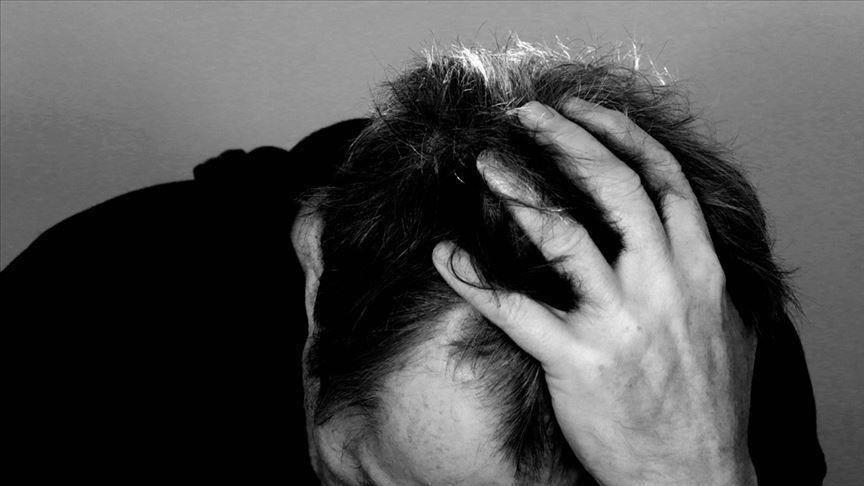Bangladesh: Mental health stigma a barrier to care
14,436 people in Bangladesh had taken their own life since March 2020, 70% more than coronavirus, study finds
 file photo
file photo
DHAKA, Bangladesh
Mental health challenges in Bangladesh remain unmet due to lack of awareness and shortage of mental health professionals, according to experts.
According to a 2018 survey on mental health jointly conducted by the government and the National Institute of Mental Health (NIMH), the overall prevalence of mental disorders among the population 18 years and above was 18.7%. Prevalence of disorders was highest among those 60 years and older at 20.2%.
An estimated 10,000 people die by suicide in Bangladesh on average each year, according to the Bangladesh Bureau of Statistics.
A study published last month found that 14,436 people in Bangladesh had taken their own life since March 2020, 70% more than coronavirus claimed during that period.
The study said 49% of suicide victims were between 20 and 35 years of age.
“We recently provided mental health support to some 11,000 people mostly women and adolescents at the community level during the pandemic,” Rifat Sharmin, a clinical psychologist at the Community empowerment program of BRAC, a non-government group, told Anadolu Agency.
“We learnt from the field experience that it still remains a stigma and taboo especially in rural Bangladesh. And it is also a tough job to provide support to patients.”
She said the group faced immense discomfort and non-cooperation from victims’ family and the public.
“They don’t want to share their personal issue of distressed and mental problems fearing to be stigmatized in society, whereas community leaders also create barriers,” she said. “If we don’t provide proper mental health treatment and support during childhood then it would become difficult in adulthood for patients.”
Shortage of mental health professionals
Helal Uddin Ahmed, associate professor of child adolescent and family psychiatry at NIMH, one of two specialized mental hospitals in Bangladesh, said the country has a very limited number of mental health specialists.
“There are a total of 270 psychiatrists while there are not more than 500 psychologists in the country at present to serve the vast number of mental health patients. And, another major concern is; those health services are mostly urban based,” he said.
He said the country must address these shortcoming because long-term mental health ailments can reduce life expectancy by 10 years on average.
The government should make mental health care a part of its primary health care system in districts and sub-districts, Sharmin suggested.
Echoing Sharmin’s views, Ahmed said: “We need to extend the mental health care facility to general hospitals rather than establishing specialized hospitals as people feel discomfort to go to specialized mental hospitals fearing to be stigmatized. All government hospitals should run mental health departments so that people could avail treatment in general hospitals, said Ahmed.
“One of the major concerns is that the mental health is widely ignored at the Bachelor of Medicine, Bachelor of Surgery (MBBS) curricula since 2012 which caused a huge dearth in the country’s healthcare system,” he added.
“We must mandatory incorporate mental health courses at MBBS level because this only could help address the crisis of specialist shortage in the country,” he said.
Meanwhile, a separate program should be launched with the Health Department to provide training to existing medicine specialists and others on mental health care to extend the service to locals, said Ahmed.
Efforts to produce more specialists
A National Mental Health Policy and Mental Health Strategy Plan is in the pipeline which would ensure patients’ rights and determine policies on how the sector and system will run properly, said Ahmed, who also worked on the proposal.
A. M. Pervez Rahim, joint secretary and concerned official with the Ministry of Health, said a legal framework is a crucial thing to be established to properly deal with the service and ensure patients’ rights.
“Thus, the government rectified and replaced the 1912’s Lunacy Act, which had been enacted by British colonial rulers, with a new one, named Mental Health Act 2018. And, it is a big jump to ensure a strong mental healthcare system,” he said.
“Meanwhile, we have three tiers in the government health care system and providing mental health care was only limited to tertiary level [medical college hospitals]. Now we are working to provide the service to the primary level [sub-districts] level across the country,” he said.
“As a signatory of the SDG [Sustainable Development Goals], we are cordially working to meet universal health coverage by 2030 in the country that requires ensuring not only physical health but also mental and social health,” said Rahim.
Meanwhile, the coronavirus pandemic has had a massive impact on mental health, especially on minors and children, and has raises the suicidal tendency, according to recently studies released in the country.
“In an effort to mitigate, we are set to deploy mental health consultants to all primary and high schools across the country, run awareness programs and open hotline supports and so on,” said Rahim, who is a mental health specialist.
Anadolu Agency website contains only a portion of the news stories offered to subscribers in the AA News Broadcasting System (HAS), and in summarized form. Please contact us for subscription options.







